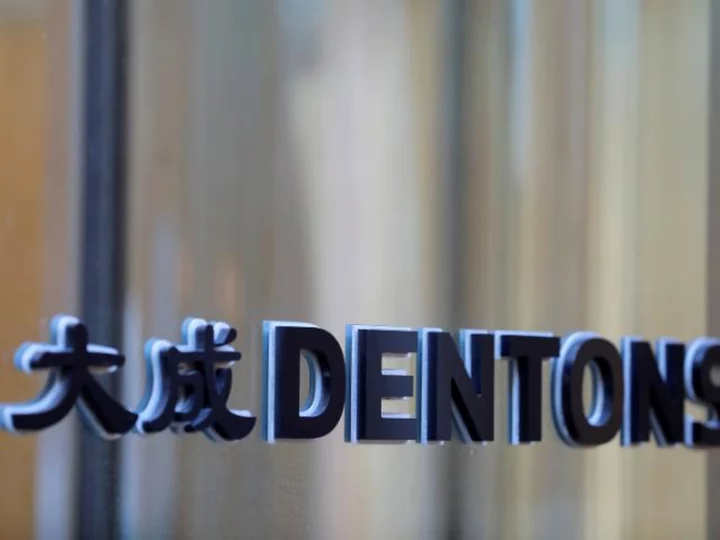Dentons, the world's biggest law firm by number of employees, is distancing itself from its business in China in response to intensifying regulation in the country.
The firm notified clients of the move this week in an internal memo shared with CNN Tuesday. Dentons said that starting this month, its China unit would operate as a standalone legal entity. Its Hong Kong practice would be unaffected and remain part of Dentons.
The Chinese entity will operate under its current local name "Dacheng," and continue to partner with Dentons under a relationship that designates it as a "preferred firm."
Dentons said the restructuring was a response to "new mandates and requirements relating to data privacy, cybersecurity, capital control and governance."
"While our legal relationship is changing, we will continue working together to meet our clients' needs," the firm said in a statement.
Dentons bills itself as the world's largest law firm, saying in its memo that it has "more people in more locations across more countries than any of our competitors." The company has 21,000 employees in more than 80 countries, 12,000 of whom are lawyers.
While Dentons did not provide further detail on the regulatory changes that prompted its move, China widened the scope of an already sweeping counter-espionage law in April, expanding the definition to include handling any "documents, data, materials or items related to national security and interests." The move spooked foreign businesses in the country.
Dentons' decision also coincides with a crackdown on international consulting firms.
In May, state security authorities said they had raided several offices of Capvision, an advisory network with headquarters in Shanghai and New York. The announcement came after Chinese officials closed the Beijing office of Mintz Group, a US corporate due diligence firm, and questioned employees at the local branch of consultancy Bain.
The measures were part of wider efforts by Beijing to increase oversight of what it deems sensitive information pertaining to national security.
The campaign has had a chilling effect on US businesses in China, leading some to wonder "who's next," Michael Hart, president of the American Chamber of Commerce in China, previously told CNN. The British Chamber of Commerce in China has also said its members are feeling unsettled, and has called on the Chinese government to clarify regulatory guidelines.
While a formal split as implemented by Dentons may appear drastic, global businesses have faced pressure in recent years to rethink how they are structured amid high geopolitical tensions and rising regulatory demands across jurisdictions.
In June, the European Union Chamber of Commerce in China said more businesses were "decoupling" their headquarters and China operations, "primarily to manage risk."
An annual survey by the organization found that 64% of respondents had experienced more difficulties doing business in China over the past year, "the highest on record," according to the group.
In June, top global venture capital firm Sequoia also announced that it would split up, separating into three entities that will cover Europe and the United States, China, and India and Southeast Asia. Its China business operates independently under its Chinese name Hongshan.
Leaders of the Silicon Valley firm said at the time that it had "become increasingly complex to run a decentralized global investment business."

